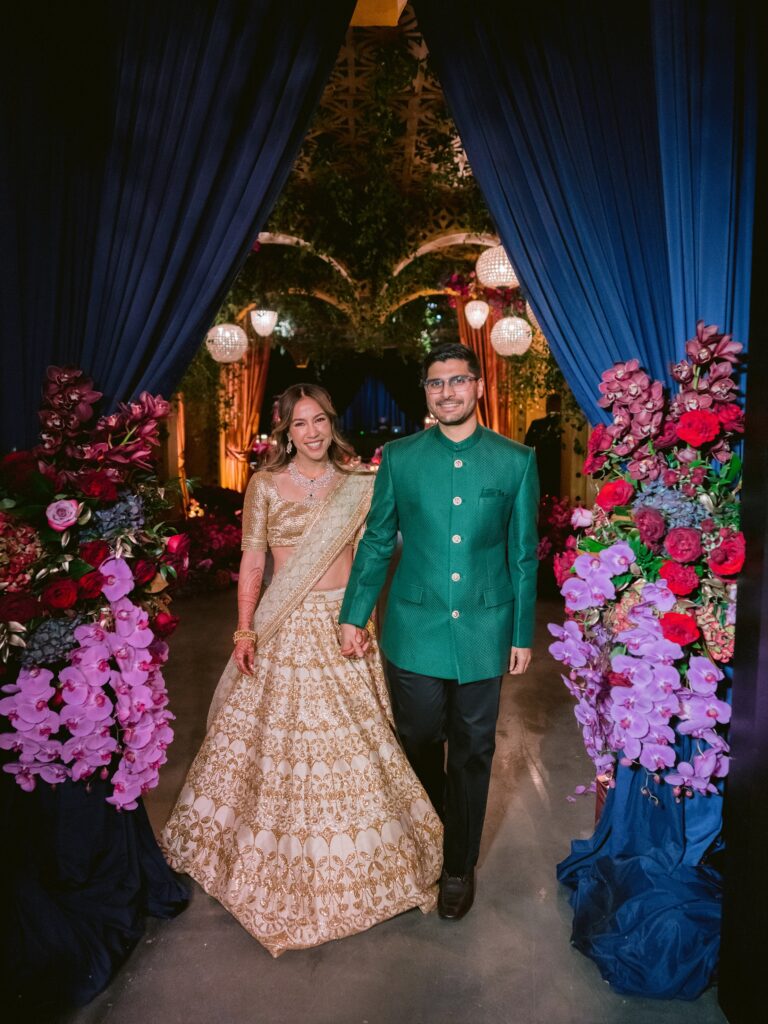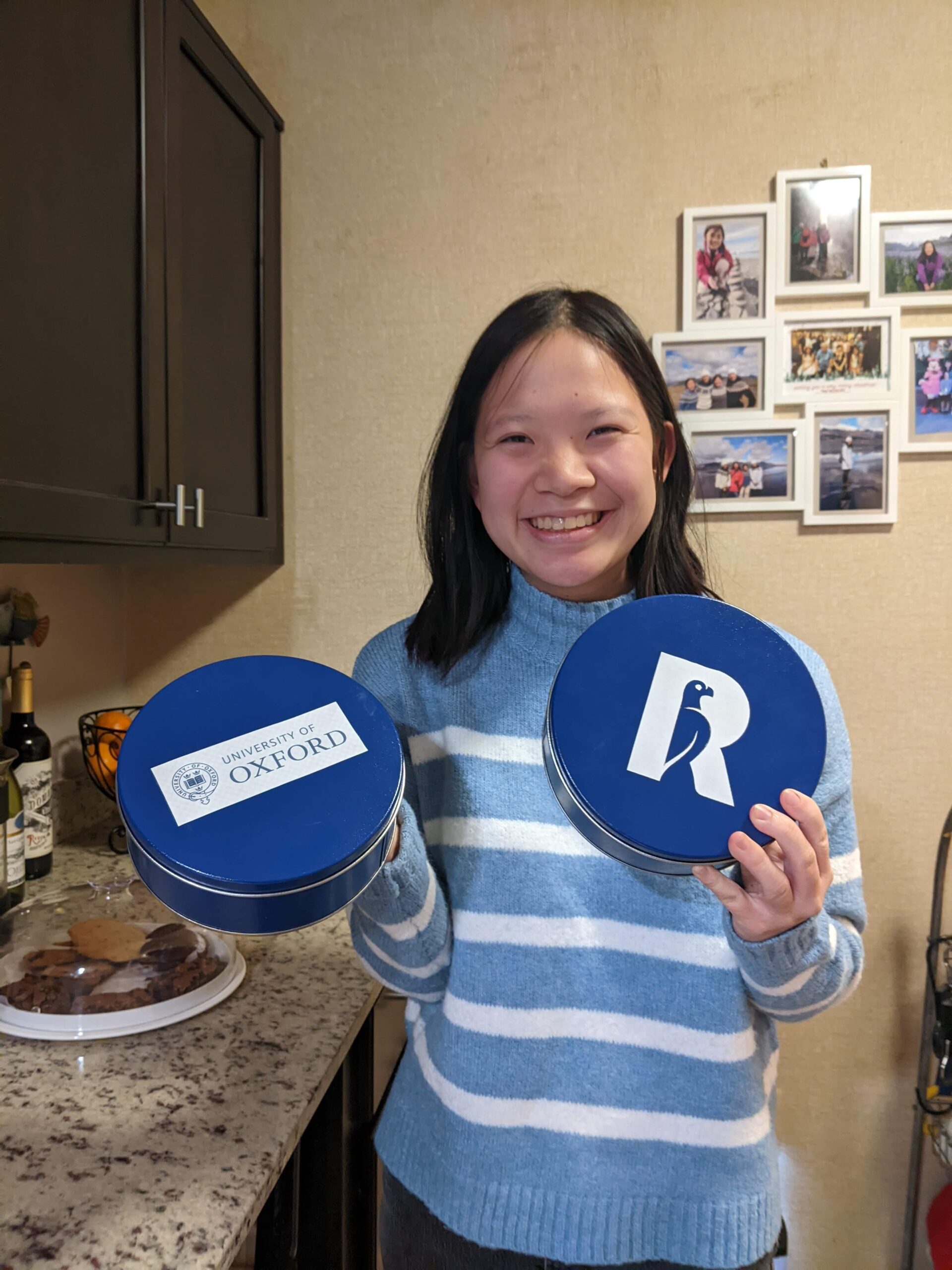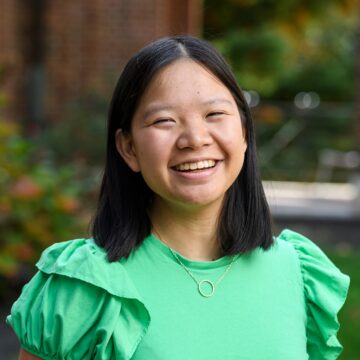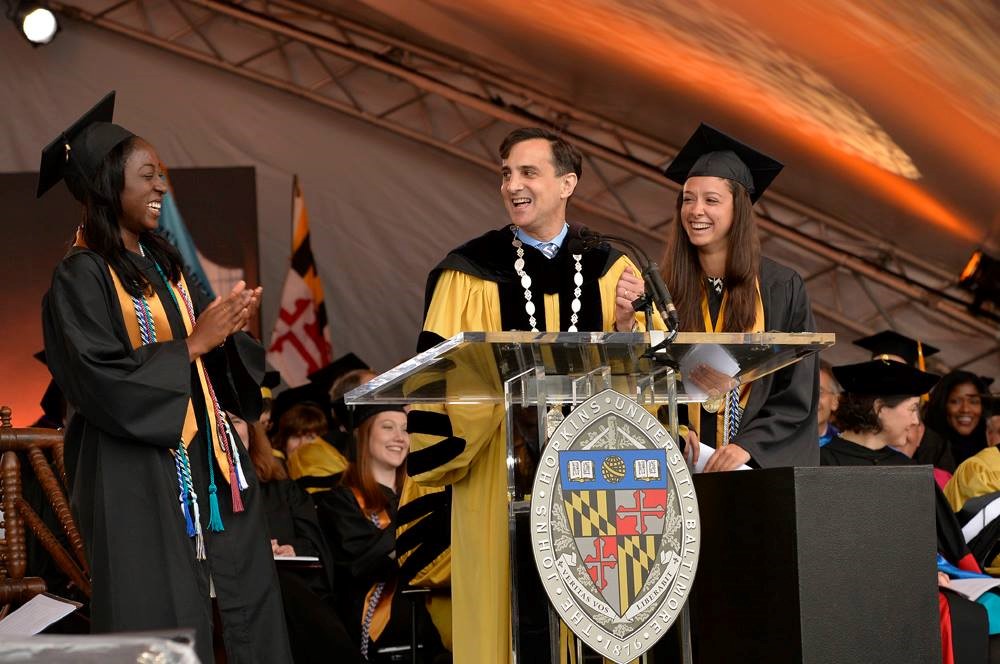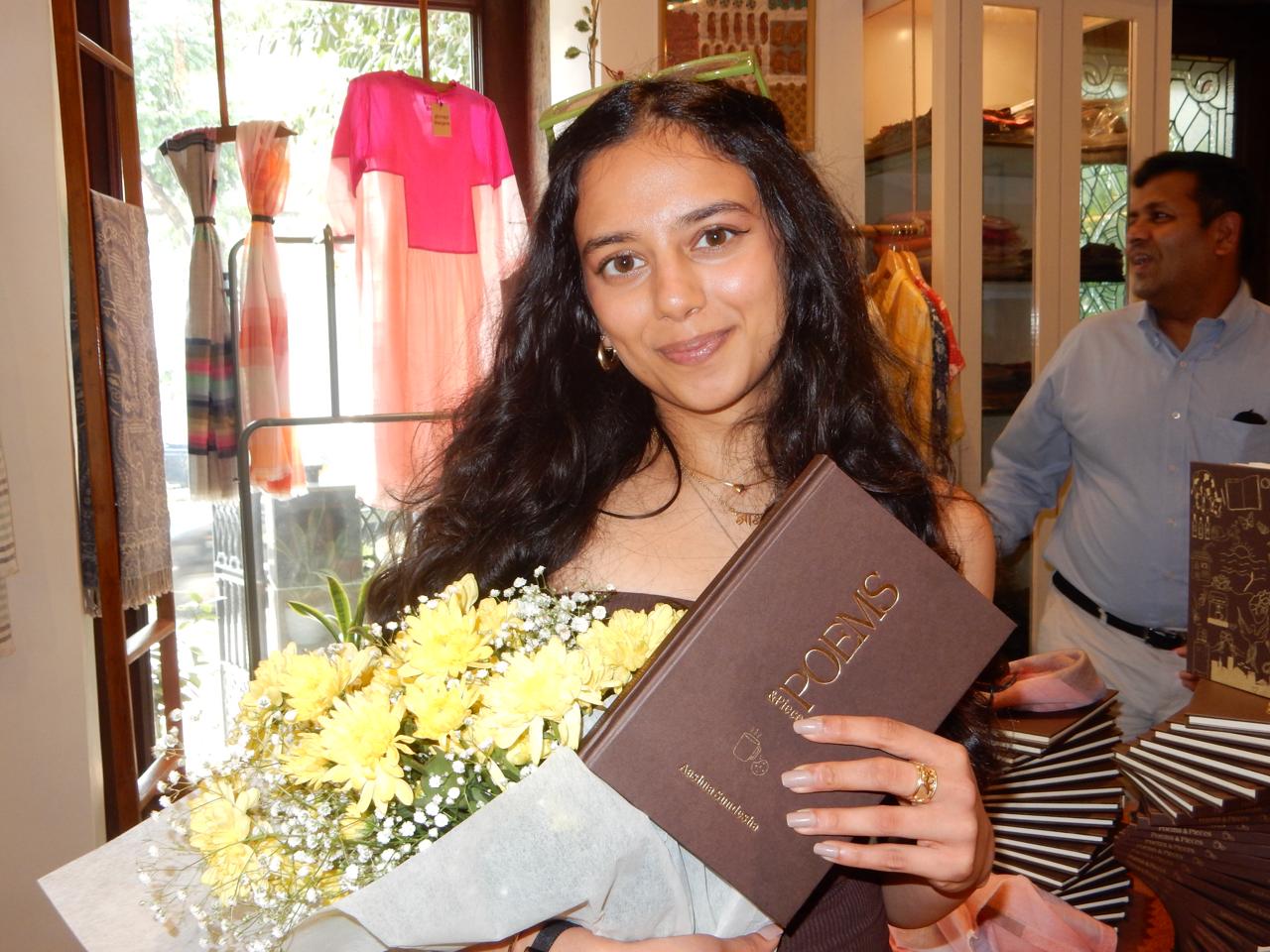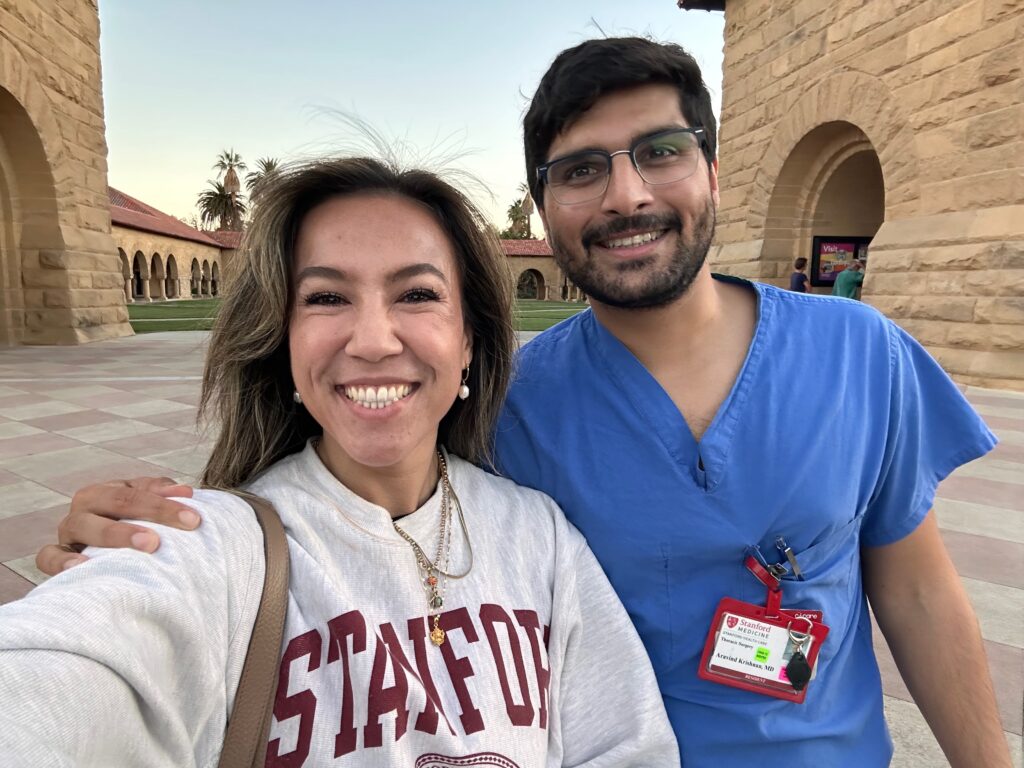
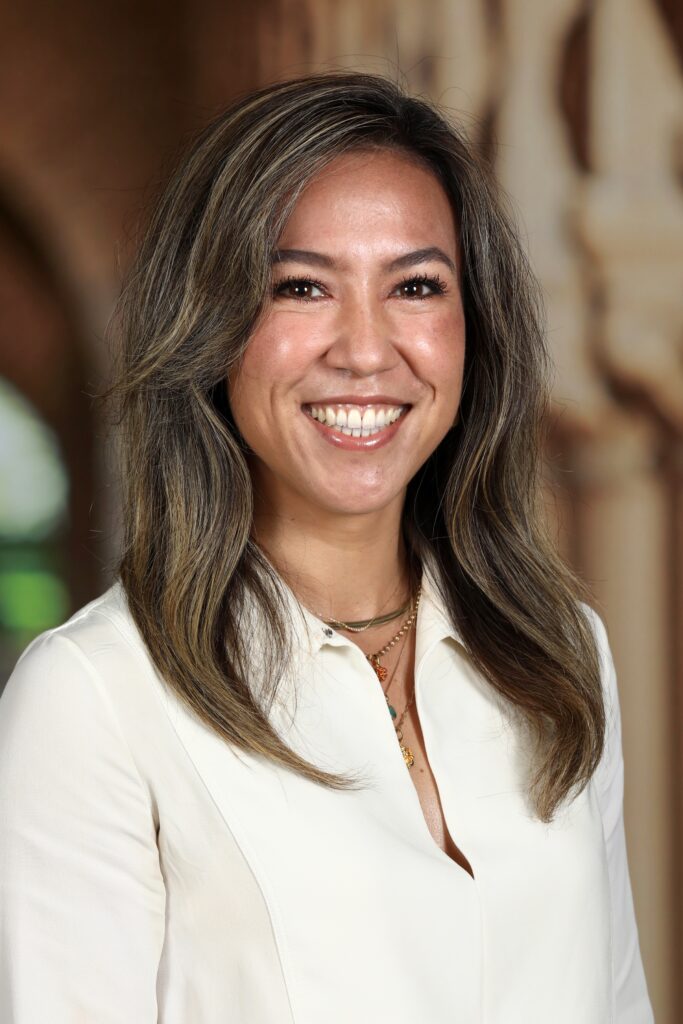
Hopkins Insider met with Hopkins alumna Melanie Shimano, ’14, MSEM ’15 to learn about her Hopkins experience and how it has impacted her post-grad life.
This transcript has been edited for clarity and brevity.
Can you tell us a little about yourself?
I majored in chemical and biomolecular engineering and minored in entrepreneurship and management. After undergrad, I got a master’s in engineering management at Hopkins and a master’s in education at Harvard because I was interested in education, technology, and public policy. Currently, I’m pursuing a PhD in educational policy at Stanford. I live in Palo Alto with my husband who also went to Hopkins for undergrad and graduated from the School of Medicine.


From the time you started Hopkins to the time you graduated, how did your academic and/or career interests evolve?
I was still thinking about engineering my senior year. I really liked the coursework. I had great mentors. My advisor, Professor Marc Donohue, was kind and patient. We had a lot of discussions about the future, things I liked, things I’ve learned, and my strengths. He encouraged me to not just take a job because it seemed like an easy next step since I had accomplished a ton of stuff.
My senior year was the first year that the chemical and biomolecular engineering major had a yearlong capstone. The goal of the class was to create a physical protype of a product that’s related to chemical engineering and hadn’t been invented before. My advisor thought it would be a great opportunity for me to get involved in hands-on stuff and start to think about how I want to put myself into engineering.
What was your capstone like?
It was not a typical class. It was more like advising meetings every week. The advisor would set milestones and say, “Here are things you might want to think about.” It was fun. My team invented an air-sterilizing travel pillow. It was like a neck pillow people wear on airplanes but with a fan that sterilized air in your breathing zone so you wouldn’t get sick from the people sitting next to you.
We thought through different iterations of why this would be important and who this would be important for. Then we had to go through testing and think through how we wanted to sterilize the air. Instead of using filters you have to replace all the time, we wanted to use special UV lights that zap particles in the air. But then we had to figure out how to shield the UV light so it doesn’t distract someone if they’re trying to sleep.
There were all these engineering tidbits within this one product. That was cool to see what we talked about in our classes in action. For me, that was a light bulb moment. I could see how to piece all these things together.
That was one of my favorite experiences at Hopkins. Our advisor was so great and so was the opportunity to build this product freely, having a great team and classmates, then talk about it with other people beyond students in our class because we entered the JHU Plan Competition (now called HopStart: Hopkins New Venture Challenge). It was cool to approach it as a business and not just from an engineering perspective. We got a patent for it through Johns Hopkins Technology Ventures.
The capstone connected us to a lot of different parts of Hopkins that I didn’t know existed. It all organically grew out of this required class. At least in the engineering programs, stuff like that happens all the time and it’s a great thing students can take advantage of.

Did you have a favorite professor and/or favorite class at Hopkins?
I had a professor, Dr. Lise Dahuron, who taught our senior lab. Like my advisor, she was a great teacher and mentor in thinking through why we’re doing this.
That class was similar to the capstone in that you design your own experiment and use tools in the lab to create a product. They give you a problem statement at the beginning; for instance, here’s the type of drug you need to make. She was helpful in saying here’s how you should think through this as a student; here are things that have happened in real life, which are reasons why you need to learn lab etiquette this way.
Outside of engineering, I minored in entrepreneurship and management. One of my favorite classes was oral presentations. You gave a presentation every single week, and the point of it was to practice different types of public speaking. One of the course’s tenets was public speaking is like any other skill where you have to practice it repeatedly.
The class covered different types of presentations for different types of audiences to help you work that muscle. That was helpful. I took that class at the same time as my capstone. For the business planning competition, the class helped me think about how to give a pitch to funders to get excited about this kind of product; how do I explain the important technical part but also the reason why you should think this is important?
I’ve used a lot of the principles of the oral presentation class. I used to work in city government in Baltimore as a data analyst. I was later hired as faculty in the Center for Leadership Education and taught the same oral presentations class!
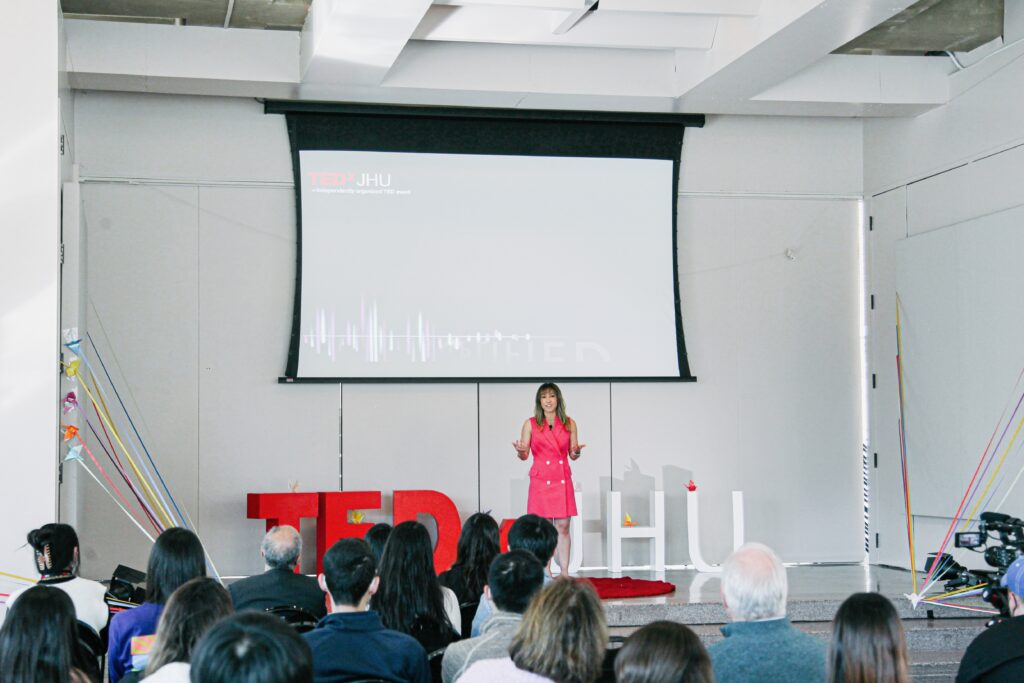
Since you graduated, how have you stayed connected to Hopkins?
My husband also went to Hopkins for undergrad and for medical school. One of the things we really enjoy is going back to Baltimore. I really loved doing panel discussions at women in engineering events and alumni and admissions events.
Now that we’ve moved to Palo Alto, we’ve connected with a lot of alumni who are in the area. The other week we had dinner with another couple who both went to Hopkins. We’ve gone to several weddings of friends who are from Hopkins.
It was funny—we were at the airport a couple weeks ago. One of the people on the flight was in the same fraternity as my husband at Hopkins. We were in Vail, which is not where he lived nor we. And then we ended up having the same layover for 2.5 hours and spent it catching up.
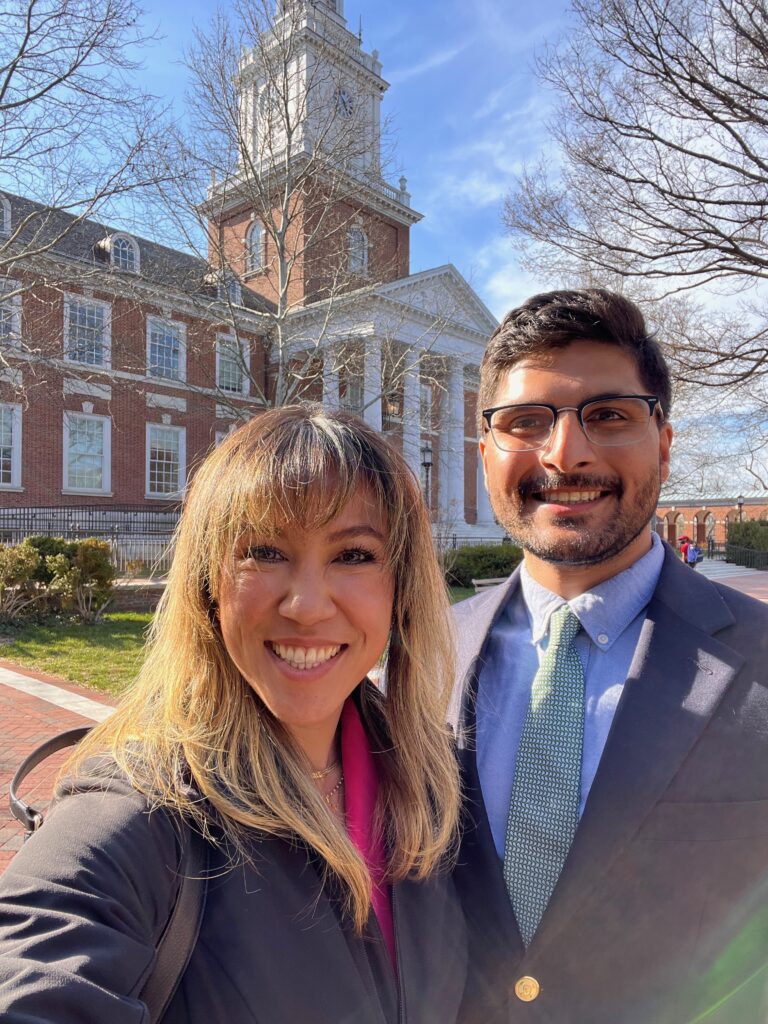
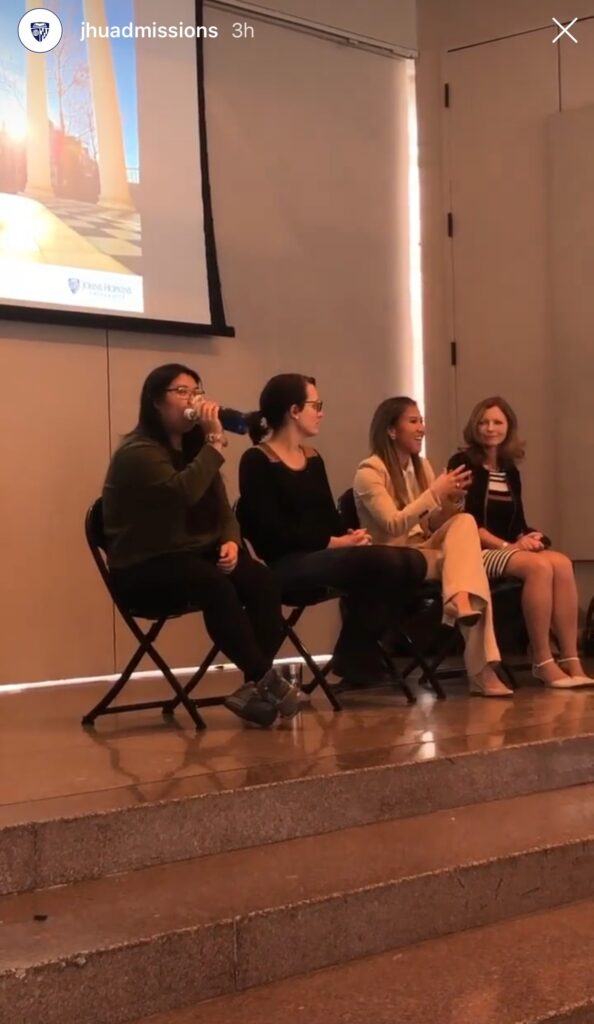
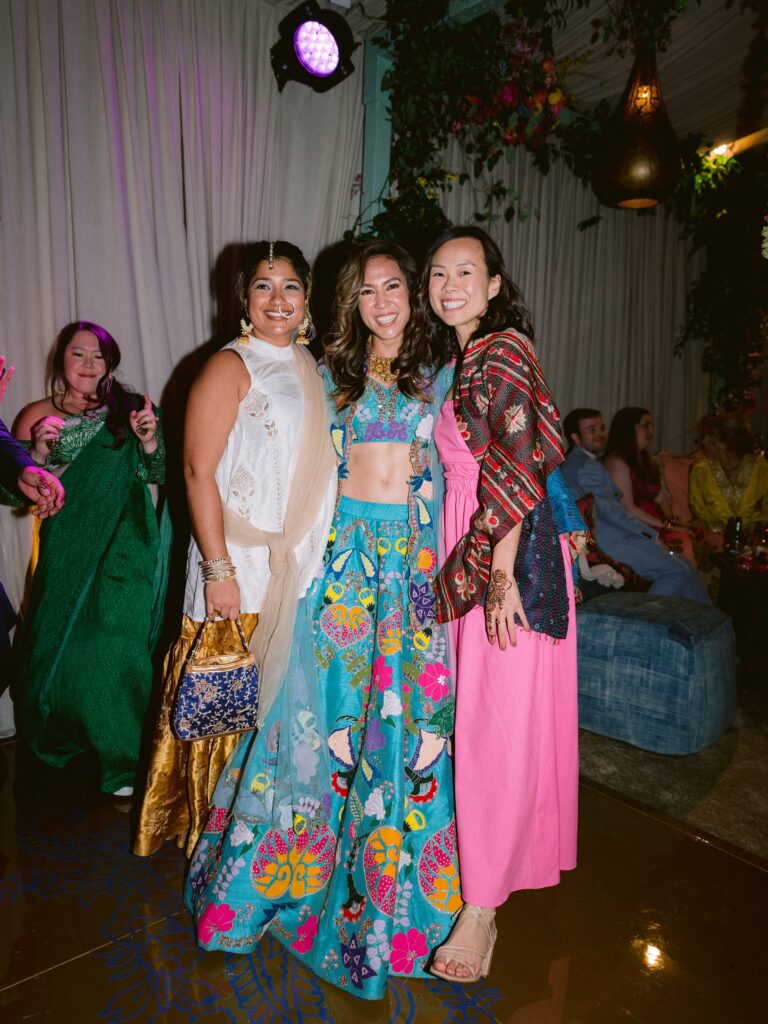
What are some of your favorite memories from Hopkins and Baltimore?
I was on a dance team called Jaywalk for all four years of undergrad. The team had practices throughout the year and team members could choreograph dances. At the end of the year, we’d have a showcase.
I’ve danced since I was five years old, so it was a nice way to stay grounded in a lifelong hobby. It was a really cool community, and they were my role models. We would do fun things outside of dance as well.
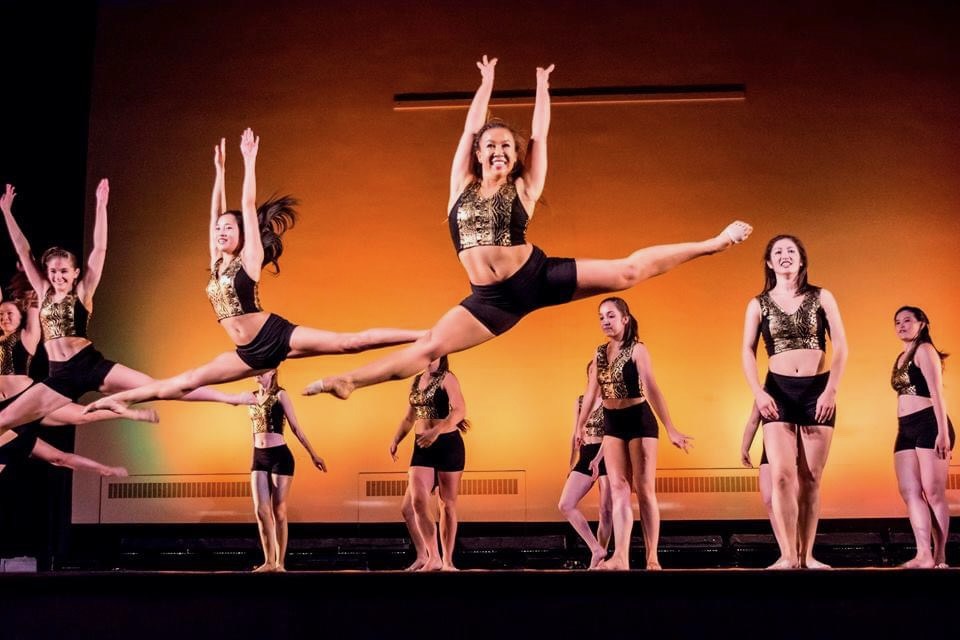

What about your Hopkins experience had the greatest impact on you?
I mentioned this already, but the capstone class. That opened a lot of doors to different elements of campus.
After undergrad, I did a fifth-year master’s in engineering management. Part of me wanted to continue in the master’s program to keep working on the product we were building.
On my way back to campus in the fall for my master’s program, I sat next to President Ron Daniels on the plane. I talked with him about my capstone project, and he connected me with Tech Ventures. There are so many happenstance events like that that have happened through Hopkins because we’re a tight-knit community.
I then ran into him several years later. I started this computer science, community engagement program in Baltimore City schools. Students would build tabletop greenhouses with computer programing and robotics and cook with the vegetables they produced. They opened a pop-up restaurant at R House, the food hall in Remington, and President Ron Daniels was there. He remembered me years after our meeting on the plane.
How did your Hopkins experience help prepare you for your career?
It taught me the power of being all in on something. Having that kind of environment helped me understand if you’re super into something and you have a team that’s supportive, you can take things really far.
I saw this in the students I later taught. I could see them appreciating the opportunity to go all in and using the support on campus to help them go in that direction.
As an example, I taught business analytics at Hopkins. I designed the course so we’d learn a bunch of skills in Excel and Python to understand basic statistics and data analysis. Then the students would do small projects throughout the semester to practice working with a real data set.
We would download a publicly available data set from the Baltimore city government or MVA. The next step was to ask if it was set up nicely for them to work with it right away. Most of the time, it wasn’t. It was a good opportunity for students to realize what kinds of questions they’re interested in answering and what data is available for them to think about. Students would often find data sets that I hadn’t even heard of.
One of my students emailed me a year after he took the class. He thanked me for creating that class because he ran a student group on campus where they provided food services to different areas in Baltimore. They were trying to figure out the best areas to start this program, and he found data and used techniques from our class to identify food deserts in Baltimore.
Why would you recommend studying at Hopkins to students interested in your major(s) or career path?
One of the great things about Hopkins is there are opportunities to do whatever you’re interested in with people who are masters in their field. You have an opportunity to learn from people who have accomplished a lot.
From my experience in engineering, I’ve taken away an approach to problem solving in a particular way. Even if you don’t stay in the field of engineering, you have the groundwork in identifying your known knowns and unknown knowns.
Another benefit of Hopkins is its network, such as the School of Education and SNF Agora Institute around campus and the Bloomberg Center in Washington, DC.
Do you have any advice for students considering Hopkins?
Hopkins provides a lot of ways to get really into things you’re interested in and flexibility in terms of navigating them. There’s a nice web of interconnectivity within Hopkins and willingness to support students in any pathway they want. I appreciated being part of smaller communities and student groups that connected me with campus and people who were doing things that were totally different from what I was doing.
Being in Baltimore affords a lot of opportunities to explore your interests outside academia. One of the cool things about Baltimore is it has a great city government. There are a ton of nonprofits and burgeoning businesses. You can make an impact directly in the Baltimore community while living in the city. People are always willing to work with Hopkins students. It’s a great way to spread your wings and take advantage of the Baltimore community more broadly as well.

